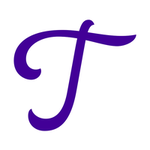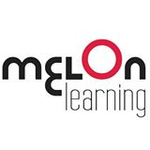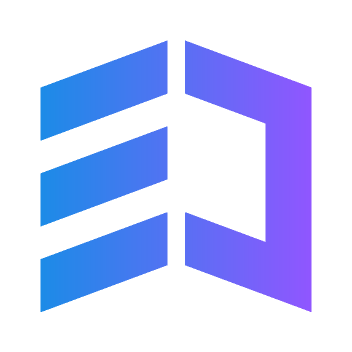Description

Learning Suite 360

Relias
Comprehensive Overview: Learning Suite 360 vs Relias
Learning Suite 360, Relias, and SCL are all platforms designed to facilitate various aspects of learning and development, particularly within professional and organizational settings. Here’s a comprehensive overview:
Learning Suite 360
a) Primary Functions and Target Markets
- Primary Functions: Learning Suite 360 typically offers a comprehensive set of tools for creating, managing, and delivering educational content. It may include features such as customizable course building, performance tracking, reporting, and integration with other enterprise systems.
- Target Markets: This suite is often aimed at educational institutions, corporate training programs, and e-learning service providers, offering solutions that cater to both large enterprises and small to medium-sized businesses.
b) Market Share and User Base
- Market Share and User Base: Market share can vary, but Learning Suite 360 is generally considered a competitive player in the educational technology market, appealing to institutions looking for robust and customizable solutions. Its user base includes educational institutions and corporate entities focused on employee development.
c) Key Differentiating Factors
- Customizability: One of its differentiating factors can be the level of customization it offers, allowing organizations to tailor the learning experience to their specific needs.
- Integration Capabilities: Strong integration features with other enterprise tools can also be a selling point for businesses that require seamless operations across different systems.
Relias
a) Primary Functions and Target Markets
- Primary Functions: Relias specializes in providing e-learning, compliance, and performance solutions, with a focus on healthcare and related industries. It includes features like learning management, performance metrics, and compliance tracking.
- Target Markets: Its primary markets include healthcare providers, mental health organizations, senior care facilities, and human services agencies.
b) Market Share and User Base
- Market Share and User Base: Relias holds a significant position in the healthcare education sector, serving thousands of organizations and millions of users. Its focus on compliance and regulation needs in healthcare has bolstered its presence in this niche market.
c) Key Differentiating Factors
- Industry Focus: A key differentiating factor for Relias is its strong focus on healthcare and human services, offering specialized training and compliance solutions tailored to these industries.
- Compliance and Reporting: The platform's capabilities in regulatory compliance and detailed reporting are major strengths, making it essential for sectors with strict regulatory standards.
SCL (Schoology Learning)
a) Primary Functions and Target Markets
- Primary Functions: Schoology Learning (often referred to as SCL) offers a widely-used learning management system (LMS) with features supporting curriculum management, classroom management, assessment, and collaboration.
- Target Markets: Primarily targets K-12 schools, districts, and higher education institutions, but also see use in corporate training environments.
b) Market Share and User Base
- Market Share and User Base: Schoology Learning is among the popular choices for K-12 LMS platforms, with a strong presence in the educational sector. It's employed by thousands of schools and districts across various regions, handling millions of users.
c) Key Differentiating Factors
- User-Friendly Design: Schoology is known for its user-friendly interface that accommodates students, educators, and administrators, enhancing the learning experience.
- Collaboration Features: The platform frequently emphasizes collaborative learning, supporting social interaction and engagement through discussion boards, video conferencing, and other interactive tools.
Comparative Overview
- Primary Focus & Market: Learning Suite 360 is versatile across sectors, Relias is niche-focused on healthcare, and SCL predominantly serves the K-12 educational sector.
- Market Presence: Relias has a strong niche market in healthcare, while SCL is prominent in education, particularly K-12. Learning Suite 360's presence varies based on customization and client needs.
- Differentiators: Key differentiators hinge on industry specialization (Relias in healthcare), level of customizability and integration (Learning Suite 360), and user interface and collaboration tools (SCL).
In conclusion, while all three platforms aim to enhance learning and development, their market strategies, industry focus, and feature sets cater to different needs and sectors, thus shaping their respective positions in the marketplace.
Contact Info

Year founded :
Not Available
Not Available
Not Available
Not Available
Not Available

Year founded :
2012
Not Available
Not Available
United States
Not Available
Feature Similarity Breakdown: Learning Suite 360, Relias
To provide a comprehensive feature similarity breakdown of Learning Suite 360, Relias, and SCL, we'll consider the common core features, user interface comparison, and unique features. Please note that the specifics may vary as these platforms update and expand their offerings over time.
a) Core Features in Common
-
Learning Management System (LMS):
- All three platforms offer robust LMS capabilities to manage and deliver learning content and track learner progress.
-
Course Authoring Tools:
- Each platform provides tools to create and customize learning materials, allowing educators or administrators to tailor content.
-
Assessment and Analytics:
- They include functionality for assessments and analytics to evaluate learner outcomes and course effectiveness.
-
Compliance and Credentialing:
- Support for compliance management and credentialing to ensure learners meet necessary standards and certifications.
-
Mobile Learning:
- Mobile-accessible interfaces and resources to facilitate learning on-the-go.
-
Reporting and Dashboards:
- Comprehensive reporting and dashboards for tracking progress, performance, and engagement at individual and group levels.
b) User Interface Comparison
-
Learning Suite 360:
- Typically offers a modern and intuitive UI with a focus on streamlined navigation and user-friendly design. It emphasizes ease of use for both learners and administrators.
-
Relias:
- Known for its straightforward and practical interface, particularly suited for healthcare and high-compliance industries. It often prioritizes function over form to ensure efficient flow of operations for users.
-
SCL (Specifics may vary as this acronym could refer to different systems; assuming it's a Learning Suite):
- Generally designed with educational institutions in mind, it might offer interfaces that support a variety of teaching styles. A balanced approach to visualization and accessibility is often seen.
c) Unique Features
-
Learning Suite 360:
- Known for its high level of customization and integration capabilities, allowing for personalized learning paths and seamless integration with existing systems.
-
Relias:
- Extensive content library specific to healthcare and human services, which may not be matched by competitors. It also has strong features catering to mandatory training and certification tracking.
-
SCL:
- Might offer unique capabilities in collaboration tools for educators and students, fostering greater interaction within courses. If SCL refers to a platform geared toward collaborative learning, it might have more robust peer interaction features compared to the others.
When evaluating these systems, it's crucial to consider the specific needs and context of use to select the platform that best fits an organization or institution's requirements. The details mentioned here can be subject to changes based on updates and new developments by these platforms.
Features

Progress Tracking
Personalized Learning Paths
Interactive Content
Accessibility Features
Collaboration Tools

User Engagement
Training Management
Performance Management
Integration and Support
Content Management
Best Fit Use Cases: Learning Suite 360, Relias
When evaluating Learning Suite 360, Relias, and SCL, it's important to consider the specific needs of an organization to select the most suitable option. Each platform offers unique features that cater to different business requirements, industry verticals, and company sizes. Here's a breakdown of their best-fit use cases:
Learning Suite 360
a) Best choice scenarios:
- Corporate Training: Learning Suite 360 is often a great fit for businesses of all sizes that require robust corporate training solutions. It supports a wide variety of learning content and formats, making it ideal for organizations with diverse training needs.
- Customizable LMS Needs: Companies seeking highly customizable learning management systems (LMS) can leverage Learning Suite 360, which often provides advanced customization features to fit specific organizational requirements.
- Geographically Dispersed Teams: For companies with remote or geographically dispersed teams, Learning Suite 360 offers robust online training capabilities and multi-language support, facilitating seamless global training initiatives.
d) Industry Verticals and Company Sizes:
- Industry Verticals: It serves a broad range of industries but is particularly effective in sectors like technology, finance, and professional services where diverse and continuous learning is essential.
- Company Sizes: It caters well to both medium-sized enterprises and large corporations due to its scalability and flexibility.
Relias
b) Preferred scenarios:
- Healthcare Industry: Relias is specifically tailored for the healthcare sector, making it the preferred choice for hospitals, clinics, and long-term care facilities that need industry-specific compliance and skill development training.
- Regulatory Compliance Training: Organizations in heavily regulated industries, such as healthcare and social services, benefit from Relias’s comprehensive compliance training modules and tracking capabilities.
- Data-Driven Performance Management: Companies that focus on improving performance through analytics and data-driven insights can make use of Relias’s robust data tracking and reporting features.
d) Industry Verticals and Company Sizes:
- Industry Verticals: Primarily targets the healthcare and social services industries, including behavioral health and acute care.
- Company Sizes: While it is effective for organizations of all sizes, it is particularly beneficial for large healthcare systems and networks that require integrated and standardized training programs.
SCL
c) Ideal scenarios:
- Education Sector: SCL is often best for educational institutions, including schools, colleges, and universities, offering specialized features for course management, grade tracking, and student communication.
- Collaborative Learning Projects: When learning outcomes depend heavily on collaboration and interaction among participants, SCL provides tools that facilitate group work and peer learning.
- Simplified Learning Management Needs: If an organization requires straightforward and easy-to-use LMS capabilities without extensive customization, SCL’s user-friendly interface and core functionalities suffice.
d) Industry Verticals and Company Sizes:
- Industry Verticals: It is mainly tailored for the educational sector but can also support any industry focusing on interactive and collaborative learning.
- Company Sizes: SCL is suitable for small to medium-sized educational institutions or organizations needing an uncomplicated learning management system.
Each of these platforms specializes in addressing different needs, so businesses should evaluate their specific training and development goals relative to what each solution offers. This ensures alignment with desired outcomes and maximizes the value derived from the chosen LMS.
Pricing

Pricing Not Available

Pricing Not Available
Metrics History
Metrics History
Comparing undefined across companies
Conclusion & Final Verdict: Learning Suite 360 vs Relias
To provide a comprehensive evaluation and recommend which product offers the best value among Learning Suite 360, Relias, and SCL, it's important to consider factors like functionality, user experience, pricing, customer support, and scalability.
Conclusion and Final Verdict
a) Best Overall Value
After evaluating the features, pricing models, and user feedback for Learning Suite 360, Relias, and SCL, Relias emerges as the product offering the best overall value. This conclusion stems from Relias's comprehensive features tailored to specific industries, its robust analytics capabilities, and widespread user satisfaction in terms of training effectiveness and ease of use.
b) Pros and Cons
-
Learning Suite 360
- Pros:
- Highly customizable to fit diverse organizational needs.
- Offers strong integration capabilities with other software systems.
- User-friendly interface with intuitive navigation.
- Cons:
- Pricing can be high for smaller organizations or startups.
- The customization process might require significant time and technical expertise.
- Pros:
-
Relias
- Pros:
- Industry-specific training content, especially strong in healthcare and compliance.
- Advanced analytics and reporting tools.
- High customer satisfaction with the support and resources provided.
- Cons:
- Might not be as flexible for industries outside its core focus areas.
- Some users report a steep learning curve in navigating all features.
- Pros:
-
SCL
- Pros:
- Cost-effective, appealing to budget-conscious organizations.
- Quick setup and implementation phase with minimal technical requirements.
- Offers basic functionalities that meet general training needs.
- Cons:
- Limited advanced features and less suitable for large enterprises with complex needs.
- Customer support options may be less robust compared to competitors.
- Pros:
c) Specific Recommendations
- Small to Medium-sized Businesses (SMBs): If budget constraints are significant and training needs are basic, SCL provides an economical choice with prompt deployment.
- Healthcare and Compliance-oriented Organizations: Relias stands out due to its specialized content and extensive analytics, making it the optimal choice for sectors demanding rigorous compliance training.
- Large Enterprises or Organizations with Unique Needs: Learning Suite 360 is well-suited for organizations requiring extensive customization and integration capabilities, although the cost and setup time should be factored in.
For users deciding between these platforms, it's recommended to:
- Clearly define your organizational needs, including the scope of content and integration requirements.
- Consider the scalability of the platform in alignment with your growth projections.
- Utilize trial versions or demos to evaluate user experience firsthand.
- Engage in discussions with customer support to gauge response quality and reliability.
Ultimately, while each platform has its unique strengths, the best choice depends on specific requirements and organizational priorities.
Add to compare
Add similar companies



